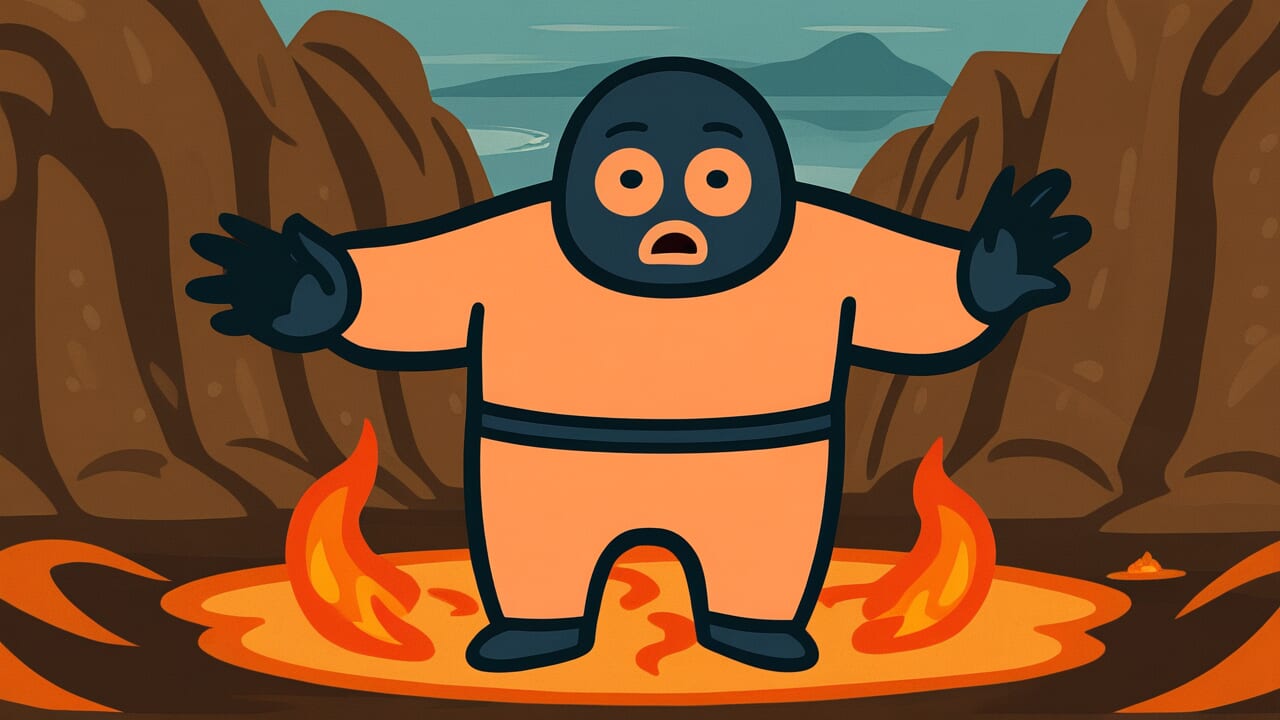How to Read “Knowing living things leads to falling into hell”
namamonoshiri jigoku ni ochiru
Meaning of “Knowing living things leads to falling into hell”
This proverb warns that people who criticize or belittle sacred matters like religion and morality will face consequences. This happens when they only have superficial, shallow knowledge.
It applies to people who learn just a little and think they understand everything. They carelessly dismiss teachings and traditions that carry deep meaning.
The proverb especially warns against criticizing valuable things without proper understanding. These include Buddhist teachings and ancestral wisdom that have supported people’s hearts throughout history.
The expression uses strong language to make a powerful point. It shows the danger of shallow knowledge combined with arrogance.
The phrase “falling into hell” emphasizes how sinful careless criticism can be. Today, we can understand this as a warning against dismissing deep philosophies and traditions.
People often do this based only on fragments of information from the internet. True wisdom comes with humility. Arrogance from shallow knowledge is what we should fear most.
Origin and Etymology
No clear written records explain the exact origin of this proverb. However, we can make interesting observations from how the words are structured.
The term “namamono-shiri” likely refers to half-baked knowledge of Buddhist terminology or Confucian classics. “Namamono” means something raw or unripe, something not fully matured.
It points to knowledge gained without deep study, just scratching the surface.
The part about “criticizing sacred matters” deserves special attention. Throughout Japanese history, people cherished religious and spiritual values as anchors for their hearts.
These included Buddhist teachings and Shinto doctrines. Criticizing or belittling such sacred teachings with incomplete knowledge was considered an extremely grave sin.
The intense expression “falling into hell” appears for a specific reason. It shows that arrogance from partial knowledge is more sinful than simple ignorance.
Our ancestors gave us a stern warning through this saying. Knowledge should make people humble, but shallow knowledge does the opposite.
It makes people arrogant instead. This proverb warns us about this human weakness.
Usage Examples
- Criticizing traditional culture after just a quick internet search? That’s knowing living things leads to falling into hell.
- He read one introductory book and started denying Buddhism. That’s exactly knowing living things leads to falling into hell.
Universal Wisdom
This proverb has been passed down because it contains deep insight into a fundamental human weakness. When people gain a little knowledge, they easily fall into the illusion that they understand everything.
What’s interesting is that this proverb doesn’t criticize simple ignorance. It warns that people who know a little are more dangerous than those who know nothing.
Why? Because ignorant people know their limits, but people with partial knowledge become overconfident.
Humans have a desire to judge things within the range they can understand. When facing something complex and profound, they want to believe they grasped it easily.
The moment they think they understand, they feel qualified to criticize. This psychological mechanism remains unchanged across time.
What’s even more serious is this: the more sacred something is, the more time and deep learning it requires to understand its true value.
Teachings and philosophies that have supported many people’s hearts contain deep meanings layered beneath the surface. Denying them with shallow understanding also closes off your own potential for growth.
Our ancestors knew that knowledge and humility must always go together. True wisdom begins with knowing your own ignorance.
This proverb continues to convey that eternal truth to us.
When AI Hears This
People with partial knowledge actually make mistakes in two stages. In the first stage, the Dunning-Kruger effect kicks in.
This is a psychological phenomenon where people with low ability overestimate themselves. Research shows that bottom 25 percent performers tend to think they’re in the top 60 percent.
In other words, knowing just a little makes them think “I understand this.”
Here’s where it gets important. In the second stage, cognitive dissonance activates. This is how the mind works to protect your beliefs when facing contradictory information.
People with partial knowledge refuse to change their thinking even when they notice their mistakes. They think “No, I must be right.”
For example, someone who dabbled in medicine recommends folk remedies that worsen someone’s condition. Even then, they shift blame saying “My advice wasn’t wrong, they just did it wrong.”
This proverb uses the strong expression “falling into hell” because it recognizes this double structure. It’s not just about failure.
When arrogance combines with avoiding responsibility, it creates harm that involves others. The lack of humility to admit what you don’t know leads to moral corruption, not the amount of knowledge.
This insight perfectly matches modern psychological findings.
Lessons for Today
This proverb teaches us that learning requires humility. In our information-overflowing age, this lesson carries special meaning.
When you start learning something new, remember that your initial understanding is just the tip of the iceberg. Philosophies with long histories and teachings that have influenced many people contain deep layers invisible from the surface.
Before denying them, develop an attitude that considers why they’ve been passed down for so long.
Practically speaking, when you feel like criticizing something, pause and ask yourself these questions. “Do I really understand this?” “Might there be deeper meaning?”
This questioning protects you from arrogance and guides you toward further growth.
At the same time, this proverb carries a message of hope. As long as you keep learning sincerely, your understanding will continue to deepen.
Things you didn’t understand at first become clear as you accumulate learning. That joy is the path to gaining true wisdom.
Treasure knowledge not as a weapon, but as something that enriches yourself.



Comments